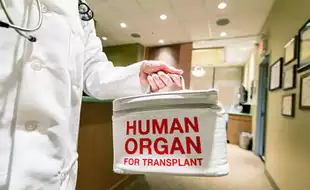News
B.C. paramedics raise concern about new ambulance policy, especially in rural areas
A new policy at BC Emergency Health Services means patients could be waiting longer for an ambulance to respond to their calls.

To combat limited resources across B.C., the new policy means that non-life-threatening calls may not be attended to and in some cases, dispatchers may postpone dispatching an ambulance to a non-life-threatening call until more ambulances become available in the area.
“What is concerning is that there are patients waiting when potentially the ambulance is waiting in the station,” Ian Tait with the Ambulance Paramedics of BC told Global News.
“The idea of holding an ambulance for the potential of (a) Code 3 call, it could be hours or days before that call comes in. Meanwhile the low acuity calls continue to come in consistently.”
More than half of ambulance calls that are placed in B.C. are assessed as non-urgent, according to the Ambulance Paramedics of BC.
Officials said that could be a problem in rural communities where there is a domino effect for fire and police resources.
“I can see in this circumstance there may be nobody responding to those low acuity calls if the only ambulance is being held for those life-threatening emergencies,” Ken Uzeloc, the Kamloops fire and Rescue Chief said.

B.C.’s rural health-care system is constantly under strain from a lack of staff and resources.
Earlier this month, a number of B.C. small-town mayors announced they were banding together to press the province for action on emergency room closures.
 That action came after communities including Oliver, Merritt, Williams Lake and Lillooet faced repeated ER closures driven primarily by staffing shortages.
That action came after communities including Oliver, Merritt, Williams Lake and Lillooet faced repeated ER closures driven primarily by staffing shortages.In September, Lillooet Mayor Laurie Hopfl began recruiting her counterparts in affected communities to create a ‘Mayors’ ER Working Group,’ aimed at crafting a made-in-rural-B.C. approach to the problem.
ER closures in rural and remote communities hit historic levels over the summer, with some facing weekly shutdowns.
“There’s never been a time like there has been in the last six months where we’ve been called upon to completely augment the health-care system,” Tait said.
“I don’t think people realize when the hospitals close that means the local ambulance becomes the entire medical system for that community.”
The union said it is telling BC Emergency Health Services that the changes are not sustainable but it will ultimately be up to the patients to determine its fate.
Our Recent News




